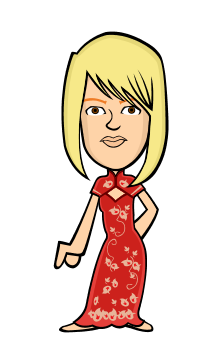13 reasons why you're always tired

Lack of sleep is not the only thing that consume energy. Some minor things that you do (or do not do) you mentally and physically exhausted and can turn your life into a chore. Here, experts explain what your habits are harmful and which are integrated to find your energy.
1. Quitting sport to do when you're tired
If you skip exercise to save power, it is actually backfire. In a study conducted at the University of Georgia, some sedentary people who started doing 20 minutes of moderate sport three times a week reported that they feel less tired and more energetic after six weeks. Exercise regularly give a boost strength and endurance, helps your cardiovascular system to operate in an efficient manner, brings oxygen and nutrients into tissues. So next time you're tempted to lengthen the couch, even going to take a little walk, you will not regret it.
2. Do not drink enough water
Being even slightly dehydrated has an influence on your energy level, said Amy Goodson, a nutritionist at Texas Health Ben Hogan Sports Medicine: "Dehydration causes a decrease in blood volume, making the blood more dense. Therefore, the heart pumps less efficiently, reducing the rate at which oxygen and nutrients reach the muscles and organs. "
3. Do not eat enough iron
"Iron deficiency can make you lethargic, irritable, weak and unable to concentrate," explains Amy Goodson. This're tired, because the oxygen that flows through you and through muscle cells is less.
You need to increase your iron intake to reduce the risk of anemia by eating lean beef, red beans, liver, eggs, veggies, nuts and peanut butter. It's best to combine them with foods rich in vitamin C improves iron absorption because the body.

4. Are you a perfectionist (a)
You struggle to be perfect (a) - which acknowledges it's impossible - work hard and more than necessary, Irene S. Levine explains, psychiatrist professor at the School of Medicine at the University of New York: "You assume tasks which are difficult or impossible to achieve that, eventually, you're never satisfied with yourself. "It recommends you set a time limit for your projects and respect. Thus, you will realize that the extra time spent perfecting work will not make it better.
5. You're in molehill
You assume that your employer will dismiss you're calling a meeting unforeseen or you too afraid to ride a bike for fear of an accident, so you're touched by "catastrophism". "This anxiety and paralyzes you're mentally exhausted," says Levine. So when you find yourself having such a thought, breathe deeply and ask yourself if it is really likely to happen worst. Meditating, doing sports or share concerns with a friend can help you get over these thoughts and become more realistic.
6. Skip the breakfast
The food we eat bring fuel the body, and when you sleep, your body continues to use what you have consumed at dinner to make the blood circulate. So when you wake up, you need to do with a full breakfast. If you jump, you'll feel lethargic.
"A breakfast equates to drive the body, giving whips metabolism," says Amy Goodson, who recommend a breakfast that contains whole grains, protein and good fats light. Examples: grain protein powder, peanut butter smoothie with fruit, skim milk, almond butter, eggs with toast bread or Greek yogurt.

7. feeds you with junk food
Food gorged with sugar and simple carbohydrates with high glycemic index shows an indicator of the rapidity with which carbohydrates increase your blood sugar percentage. Maxime constant percentage of sugar followed by rapid fall, which causes fatigue during the day, indicating Amy Goodson, adding that we can maintain a stable sugar concentration feasting light grain protein at every meal. Foods are often consumed chicken (baked, not fried) and brown rice, salmon and sweet potatoes or a salad with chicken and fruit.
8. Do not know how to say "no"
To please everyone is often at the expense of their own energies. So, whether it's about your son's football coach who asks you to prepare biscuits or team owner who asks you to come into the office next Saturday is not necessarily to say "yes". In the long run, it can fill up resentment and constantly rage.
"Train to say" no "loud" advises Susan Albers, a psychologist at the Cleveland Clinic. Start telling yourself in the car. You hear yourself saying "no" loudly say it will help you more easily when you need.
9. Your office is messy
An office in disarray're mentally exhausted, restricting your ability to concentrate and limit your brain to process some information, according to a study from Princeton University. At the end of each day, make sure your work and personal priorities are organized and arranged the key. This will help you start the next day in good condition. If the office needs a complete reorganization, proceed in stages. Start by sorting what's on top of the desk, then proceed methodically, shelf after shelf, drawer after drawer.
10. You work during the holidays
A "get out of the socket" and allow you to really unwind and brain allows the body to regenerate and return to office stronger. When you take a break indeed, are more creative, more productive and more effective when they return to the office.
11. Do you read emails fixed before going to sleep
Glare of a tablet, a smartphone or computer screen with background light can throw off your rhythm of your body, suppressing melatonin, the hormone that regulates sleep and wake cycles. Sensitivity to light digital gadgets can vary from person to person, but generally a good idea to avoid any technology with an hour or two before bedtime. You can not refrain from throwing an eye on the phone before you head on the pillow? Then keep it at least 35 cm distance, to reduce the risk of interfering with your sleep.
12. resorting to caffeine throughout the day
A start your day with a dose of coffee is not a problem. In fact, studies show that drinking up to three cups of coffee is a good thing, but to consume coffee in an inappropriate manner seriously disrupt your sleep cycle. A study published in the Journal of Clinical Sleep Medicine shows that the use of caffeine six hours before going to bed affects sleep. So, in the mid-afternoon, put coffee back in the closet.

13. You sleep late in the weekend
Spend Saturday night and sleep late Sunday trains difficulties falling asleep Sunday night, and therefore a lack of sleep Monday morning, said dr. Towfih. Because of stay locked in the house can affect your social life, struggling to wake up to an hour as normal Sunday and make a siesta in the afternoon.
"A 20-minute siesta allows the body to recharge their batteries without entering deep sleep cycles, which would make you to wake up and tired," says dr. Towfit.



